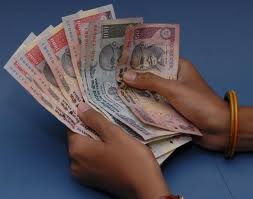
New Delhi, May 14: Tax evaders could be in for trouble as the government is mulling placing tax crimes on a par with money laundering offences that have severe criminal and financial implications.
India could bring income-tax offences under its anti-money laundering law, making way for easier prosecution, rigorous imprisonment, fines and shifting onus on the accused to prove he is not guilty.
"An inter-departmental group has been set up to examine the changes required," a senior finance ministry official told ET.
The group's recommendations could then be placed before Parliament and changes made to the Prevention of Money Laundering (amendment) Bill, 2011.
The offences will include concealment of income, failure to deposit tax deducted at source and false evidence.
These changes are consistent with a global plan drawn up by the Finance Action Task Force, an inter-governmental body to combat money laundering and terror financing, of which India is a member.
Many countries have already incorporated these offences in their money laundering laws even though the FATF adopted them as part of new standards in February this year.
If these offences become scheduled offences under the anti-money laundering law, they will attract rigorous imprisonment of three to seven years and a fine of up to 5 lakh. A proposed amendment to PMLA has suggested open-ended penalty, to be decided by courts, as opposed to a maximum of 5 lakh fine now.
The trial in these cases will be faster as offences under PMLA are tried in special courts and the onus to prove innocence lies on the accused.
Sunil Jain, partner with J Sagar Associates, feels these may act as a deterrent
"Tax authorities already have many tough options and not all of them are used so we do not need any more onerous provisions, particularly in the case of residents," he said.
The apex direct taxes body, the Central Board of Direct Taxes, had earlier written to the revenue department, the nodal department for PMLA, to bring some tax evasion offences under its ambit.
However, the suggestion made two years back was put on the back burner since there was no compulsion on India to bring them under the PMLA.
India, which became a member of the FATF in 2010, is obliged to make changes in its own anti-money laundering law now.
Under the current rules, the income tax department has to take law ministry's permission to initiate prosecution against tax evaders. The cumbersome procedure has meant that so far no evader has been put behind the bars although there is a provision for six months imprisonment and penalty on tax evasion.
The tax authorities prefer not to invoke these provisions as prosecution could take many years.
Significant changes have already been made through the Finance Bill, 2012, passed by the Lok Sabha on May 8 that will allow for easier prosecution.
India has submitted a detailed action plan that lists various short-term, medium-term and long-term measures required to conform to FATF standards and some of the amendments proposed in the PMLA Bill are in line with these commitments.





Comments
Add new comment